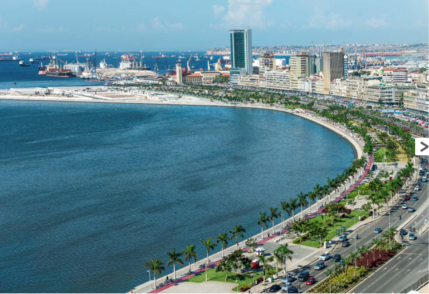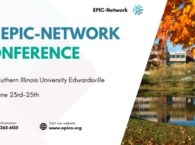Nadia Voigt da Mata developed the “Keokuk Pathways and Green Streets Plan” as a student at the University of Iowa

Favorite Place
The Bay of Luanda is located in Luanda’s gorgeous downtown area. Right in front of this bay are several historical monuments, modern buildings, and a trail/pathway I run daily. Running through this trail early in the morning is a fantastic experience and is genuinely therapeutic.
If applicable, briefly describe your first interaction with a school-community project and the impact it had on you.
The “Keokuk Pathways and Green Streets Plan” – the final year capstone project- was the first time I interacted with a community in an academic setting at such a scale. The “Green Streets” plan is the only reason I had the chance to experience a partnership project between a school and a community. Community participation and engagement process throughout the development of the plan was seamless. I think the reason for that was because the IISC did a great work of intermediating the communication between the community and the students. Which ultimately allowed us to visit the city multiple times, engage with residents and understand the project’s aims in its entirety. I believe that impacted me the most.
What are some of the top priorities you are working on this year?
I am currently working on getting into a PhD program focused in, among other things, transportation planning in the Global South. The “Keokuk Pathways and Green Streets Plan” sparked my interest to conduct research in contexts I am more familiar with and urgently need the same attention. The feedback from Professors, and community actors we worked with tells me that it is a research theme worth pursuing.
In what ways are you looking to engage, or work with others, either from within the EPIC-Network or in general?
If an opportunity to engage with others presented itself, I think I would embrace it, much like I do with every project I immerse myself in. I want to engage with others in whichever way is possible. I learned and acquired more skills than I imagined working on this project, so I wouldn’t overlook an opportunity to gain even more. I aspire to pursue further post-graduate research in transportation planning and collaborating with EPIC-Network and others is a good prospect.
What led you to participate within the EPIC-Network in your current capacity?
My academic interests led me to pursue a master’s degree in the USA, which brought me to Iowa. During my last year in the School of Urban Planning and Public Affairs program together with four other students and alongside IISC, I undertook a capstone project for a course called Field Problems, where we developed the “Keokuk Pathways and Green Streets Plan” (KPGSP). Following that – be it by my performance or lack of availability by other team members – I was invited to participate in the EPIC-Network to share my experience with other students and hopefully inspire a few to consider ways in which Universities can collaborate with local governments.
What are you hoping attendees will take with them after attending your presentation?
I hope that through my participation and presentation attendees can see that there are other entities with whom local governments can cooperate to improve their community. These are entities that want to help surrounding communities and are commited to improving resident’s lives. I also hope that I can convey the fact that because I was not working alone, and the fact that I was cooperating with others – professors, academics, community actors, and colleagues- made me feel fearless and motivated in all I was doing during the capstone project. There’s power in numbers, and school community partnerships are no exception. Learn more about this recent webinar featuring Nadia.
Bio
Nadia Voigt da Mata is an Architect and an Urban Planner currently in Angola. She is a Fulbright Alumni who in 2020 graduated with a master’s degree in Urban and Regional Planning in the School of Planning and Public Affairs at the University of Iowa. During graduate school, Nadia concentrated her course studies in transportation planning, which led her to be involved with Keokuk’s city and the “Keokuk Pathways and Green Streets Plan”. Nadia is currently invested in pursuing a doctoral degree, for which she secured a Merit Scholarship from the Angolan Government in September 2021. She hopes to continue learning and conducting research in sustainable transportation planning, and in the future work with communities such as Keokuk.



